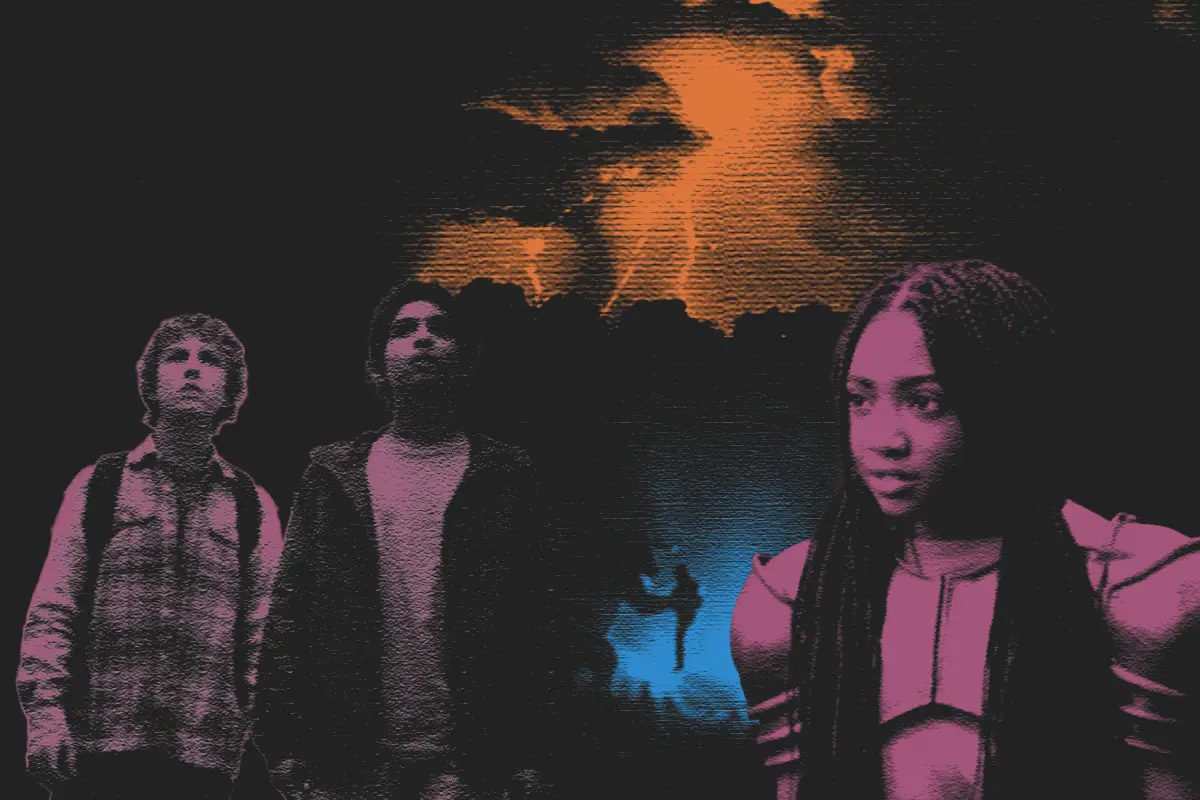With roots in neurodivergent representation, the latest adaptation of the beloved YA series hits Disney+ this December.
Fans of the Percy Jackson series have been eagerly waiting for their longtime hero to finally have his chance on the small screen.
Fortunately, they won’t have to wait much longer. After acquiring the film rights from 20th Century Fox in 2017, Disney+ will be releasing the first season of Percy Jackson and the Olympians this winter. The first season will follow the plot of The Lightning Thief, where self-proclaimed “troubled kid” Percy Jackson finds out that the Greek gods are very much alive and need his help in retrieving Zeus’s lightning bolt.
Not only has this news been exciting for fans, but it also signifies a new age of television—one where differences are celebrated and children from all walks of life can see themselves represented in the stories being told. Feeling seen is one of the greatest advantages of any form of media, and Percy Jackson is already gearing up to be the hero people of all ages will admire.
Part of what makes television’s latest offering in Percy Jackson so exciting is that it brings unique representation for children not often seen in the media. Rick Riordan, creator of the book series and all tie-in media, has famously spoken on his character’s humble origins. His son, Haley, was diagnosed at a young age with ADHD and dyslexia. To help motivate his son to keep reading and remain confident in the face of his learning disabilities, Riordan came up with the story of Percy Jackson.
Much like Haley, Percy struggled with ADHD and dyslexia. However, these differences that made focusing in school difficult and reading harder were, in fact, a sign that Percy was special. They were a sign that he was a demigod.
Suddenly, kids who were labeled “different” for being neurodivergent could embrace the fact that it wasn’t something to be ashamed of. Percy’s ADHD was explained as part of being a demigod, as it prepared him for battle and gave him killer reflexes. His dyslexia? That was because his brain was hardwired for Ancient Greek.
With a few strokes of his pen, Riordan managed to transform what many children had been told was a disability into their greatest superpower.
It’s evident that these stories have made a significant impact. Riordan’s son, Haley, would go on to graduate from college with a Masters degree in Higher Education and a certificate in Learning Differences. He now works at a disability office in a Boston university, working to provide proper accommodations for students who are in need.
The recent teaser trailer has sparked renewed interest among fans because of the neurodivergent representation.
In the trailer, Percy can be seen struggling in school with his dyslexia, unable to read the words as they blur before his eyes. Dyslexia rarely gets this kind of representation in children’s media, and seeing Percy struggle on screen with the same obstacles they do will empower children and make them feel capable.
Riordan drew on his own experiences as the father of a child diagnosed with ADHD and dyslexia, as well as his time as a teacher of middle-school students. “I had a lot of sympathy for the kids who couldn’t stay still,” said Riordan in a public book panel on September 30th in Illinois. “Percy is one of us. And I thought it was just right that those differences would be signs not of a problem, but of greatness.”
The release of the show will also prove to be cathartic for many fans. Some consider this to be years in the making. After the release of the movies, there was a mass outcry from devoted readers over plot inaccuracies as the main character’s ages were upgraded from 12 to 20-something.
Riordan has made no secret of his distaste for the movies. “When I first read the script I’ll admit I was plunged into despair at just how bad it was,” said the author in a blog post. His common critiques were the sexed-up script, one-dimensional characters, and plot revamping.
In other words, the changes did not reflect his books. He also spoke extensively on his lack of creative control when working with Hollywood, with most of his suggestions to enrichen the script ignored.
But after the Disney acquisition, Riordan “saw an opportunity to do something new in the adaptation space,” as he noted at the book panel. “We want to have an adaptation that is good.”
Now, he has power and agency in the adaptation process, overseeing every stage of the television show’s production. Fans can rest assured in the knowledge that Percy Jackson has Riordan’s stamp of approval, something the movies never did.
While the majority of fans embraced the show, not everyone appreciated the changes made in the book’s transition to the small screen. For the show, Leah Sava Jeffries, a young Black actress, was cast in the role of Annabeth, Percy’s friend who accompanies him on his quest. In the books, Annabeth was explicitly white, and the casting of her as a person of color for the show resulted in racist backlash from a sect of the fandom community.
Riordan was swift in reacting to the negative reception from fans who were unhappy with the casting decision. “You are judging her appropriateness for this role solely and exclusively on how she looks. She is a Black girl playing someone who was described in the books as white. Friends, that is racism,” Riordan wrote in a blog post addressing the hate.
Riordan makes clear that Jeffries was chosen because she fully embodied the character. “Leah Jeffries is Annabeth Chase,” he said.
Now, young Black children can see themselves represented on television through the eyes of Jeffries. She is portraying a young Black girl in her evolution as a hero, not just there as fodder for the main character. This establishes the Percy Jackson show as an inclusive and forward-thinking addition to the canon of television greats, while staying true to the values of the original book series.
Riordan made it clear that anyone who remained negative over casting missed the point of his novel’s messages. “Anyone can be a hero. If you don’t get that, if you’re still upset about the casting of this marvelous trio, then it doesn’t matter how many times you have read the books. You didn’t learn anything from them,” he said in the same blog post.
In Percy Jackson and the Olympians, viewers from all walks of life can see themselves in Percy and Annabeth. By refusing to whitewash the cast or tell a commercial story, Riordan and the show’s co-creators have preserved the heart of what the books have always been about: realizing that what makes someone different is their greatest source of strength.
“This will be an adaptation that I am proud of, and which fully honors the spirit of Percy Jackson and the Olympians,” said Riordan in the same blog post. “[I’m] taking the bedtime story I told my son twenty years ago to make him feel better about being neurodivergent, and improving on it so that kids all over the world can continue to see themselves as heroes at Camp Half-Blood.”
Percy Jackson and the Olympians will debut on Disney Plus on December 20th, 2023.

















